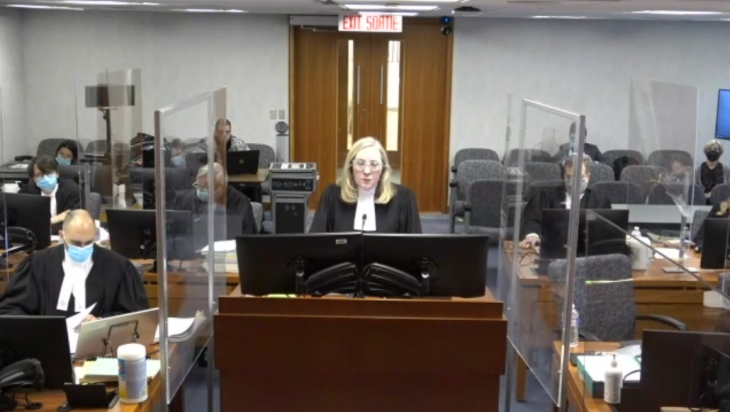
Regional carriers say no conflict with ISED’s spectrum licensing rules
By Ahmad Hathout
OTTAWA – The CRTC’s decision last spring to mandate seamless roaming between networks should be struck down because the technical configurations of such a requirement falls exclusively in the domain of the Radiocommunications Act administered by Innovation Canada (ISED), the large telecoms argued today.
The regulator’s April 2021 decision, which broadly mandated wholesale access by regional players to the large wireless networks, also included the requirement that the host network ensure that calls are not dropped when the user on one network is switched to another when roaming. It cited thousands of dropped calls a day along the network border as a reason for the decision.
Telus filed a challenge in the Federal Court of Appeal that summer against the seamless roaming requirement and a CRTC determination that the regulator does not have jurisdiction over wireless access to municipal infrastructure, which was dealt with on the first day of the two-day hearing beginning Monday.
Today’s hearing dealt exclusively with the former issue, where Telus’s counsel Catherine Beagan Flood argued that ISED’s spectrum licensing rules explicitly do not require the holder of the license to implement seamless roaming, creating a direct conflict with the CRTC decision. In other words, if a national telecom appealed the seamless roaming requirement to ISED, the department would say it would not need to, their counsel claims.
Flood argued ISED has exclusive authority to deal with issues emanating from spectrum and its technical implications. Specifically, she notes that the Radiocommunications Act gives the minister the sole authority to rule on the technical configurations of antennas on the network border to make seamless roaming work.
Telus’s application was supported by Bell and Rogers, which argued that Parliament intended for there to be a delineation between the powers related to telecommunications, radiocommunications, and broadcasting.
Bell’s counsel Brandon Kain carried Telus’s argument further by suggesting there is a “telling” omission by the CRTC not to include an analysis of its own authority versus ISED’s authority on the seamless roaming issue, whereas that type of comparative analysis is evident elsewhere in its April decision.
He further argued for ISED’s exclusive jurisdiction over the roaming issue by drawing attention to the department’s spectrum policy framework, which includes a mention that the ministry is trying to harmonize with international jurisdictions to the “greatest extent feasible.” Yet, he noted, Canada stands among few with that kind of mandate.
Regional carriers say no conflict
Lawyers representing regional carriers including Bragg’s Eastlink, Quebecor’s Videotron, and Ice Wireless, however, argued there is no conflict between the CRTC’s decision and ISED’s spectrum licensing rules, and that the CRTC has deference to issues relating broadly to telecommunications services.
Specifically, they argue that seamless roaming is wholly within the authority of the CRTC under section 24 of the Telecommunications Act, which allows the commission to impose terms and conditions on telecom services. That authority, they say, gives the regulator the discretion to make the condition for seamless roaming.
An additional argument claimed that licensing spectrum and the CRTC’s ability to set terms and conditions on top of that license are different matters that don’t cross into conflict territory.
“They should be read together,” one lawyer said, “otherwise the CRTC would be frozen in time,” alluding to an inability for it to make certain determinations on telecommunications matters.
The other major argument for the regional players addressed the language used in ISED’s licensing rules. A lawyer for Ice Wireless argued that the language “not required” as used in the licensing rules as opposed to a term like “prohibited” suggests leeway with CRTC discretion on these matters.
Ice’s lawyer also argued that the seamless roaming decision is in line with the minister’s 2019 policy direction to the CRTC, which broadly states that the regulator must focus its efforts on enhancing competition, investment and affordable consumer prices.
Screenshot of Telus counsel Catherine Beagan Flood


